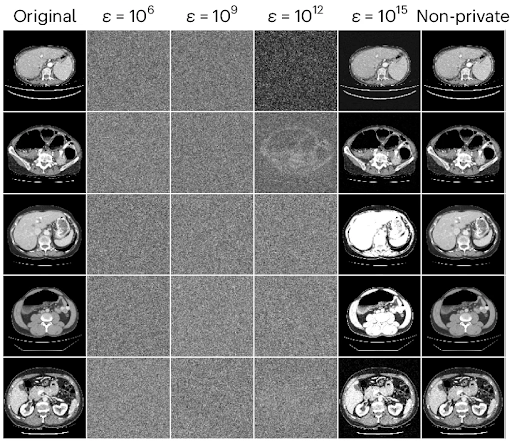In the vast environment of healthcare, compliance with regulations is crucial for medical practices, especially in oncology. The Stark Law is a significant regulation designed to prevent conflicts of interest and fraudulent practices in referrals for healthcare services. Medical practice administrators, owners, and IT managers must understand Stark Law compliance to ensure ethical operations. With the introduction of artificial intelligence (AI) and technology, organizations can refine workflows, reduce risks, and maintain compliance while providing efficient patient care.
Understanding Stark Law: An Overview
Stark Law, formally known as the Physician Self-Referral Law, restricts physicians from referring patients to facilities where they or their immediate family members have a financial interest. It aims to eliminate conflicts of interest that could affect patient care and increase healthcare costs. Violating Stark Law can lead to significant penalties, including fines of up to $15,000 per violation and potential exclusion from federal healthcare programs.
For oncology practices, following Stark Law is critical, particularly regarding compensation arrangements with healthcare professionals. These arrangements often present compliance challenges. For example, the case involving Halifax Hospital Medical Center, which settled for $85 million due to improper physician compensation linked to referrals, highlights the risks of non-compliance. The flawed compensation structure led to significant liability, emphasizing the need for transparent and compliant compensation frameworks.
Key Compliance Areas Under Stark Law
Oncology practices must focus on several key areas for Stark Law compliance:
1. Referral Relationships
Oncology practices should have strict protocols to avoid referrals to facilities where physicians or family members have financial interests. Compliance experts emphasize the need for healthcare entities to develop internal compliance programs that effectively address and prevent legal risks associated with referrals. Regular audits of referral practices can help ensure adherence to Stark Law and prevent costly violations.
2. Compensation Models
Compensation arrangements must meet Stark Law requirements. The bona fide employment exception states that compensation should be based solely on services performed by physicians and not influenced by referral volumes. Financial models that include bonuses based on patient referrals can lead to non-compliance. It is advisable for oncology practices to consult legal counsel before implementing new compensation structures to ensure they meet regulatory standards.
3. Documentation and Record-Keeping
Maintaining accurate and comprehensive documentation is essential for compliance. Practices must document all referrals and financial arrangements effectively. Inadequate documentation can lead to compliance issues and hinder a practice’s ability to defend against claims of non-compliance. Thorough documentation acts as a protective measure against unexpected regulatory scrutiny.
4. Addressing Insider Concerns
Healthcare organizations should take insider concerns about compliance seriously. The Halifax case illustrated the risks of ignoring warnings about potential Stark Law violations. Promptly investigating these concerns can prevent escalation and show a commitment to maintaining regulatory compliance.
Leveraging AI for Compliance and Efficiency
Streamlining Workflows with AI Solutions
AI solutions can help oncology practices streamline workflows, enhance compliance, and automate routine tasks. Organizations can utilize AI technologies in various ways:
1. Compliance Monitoring
AI can provide real-time monitoring of referral patterns and financial interests. By analyzing data from electronic health records (EHRs) and billing systems, AI can identify anomalies or patterns that may suggest compliance risks. Automated alerts can act as an early warning system for administrators, allowing them to address potential issues before they escalate.
2. Documentation Automation
Accurate documentation is crucial for Stark Law compliance. AI tools can automate the documentation process, ensuring that all necessary records are created and maintained. Integrating AI-driven workflows into existing systems can reduce human error, ensuring that critical documents, such as referrals and consent forms, are completed correctly and on time.
3. Predictive Analytics for Compliance Risk
Advanced AI methods can use predictive analytics to assess risk factors linked to Stark Law compliance. By reviewing historical data from reimbursement claims and patient referrals, AI can identify specific practices that may need closer examination. This capability allows oncology practices to address compliance challenges proactively based on data.
4. Training and Education
AI can also improve training programs for healthcare staff on Stark Law compliance. Interactive online training modules can keep staff informed about current regulations and compliance requirements. Ongoing training ensures that all employees understand their roles in maintaining compliance and can identify potential conflicts of interest before patient referrals occur.
Recognizing Common Pitfalls in Oncology Practices
Being aware of common pitfalls related to Stark Law compliance can significantly benefit oncology practices. Key pitfalls to avoid include:
1. Improper Financial Arrangements
Many oncology practices create financial arrangements that could be seen as incentives instead of compensation for services performed. Ensuring that compensation models adhere to Stark Law’s requirements helps mitigate risk. Practices should stay updated on legal changes to adjust their arrangements accordingly.
2. Failure to Document Services Rendered
A major compliance risk arises from inadequate documentation of services provided. Every service referred or performed must be accurately documented, especially regarding compensation arrangements. Regular audits can help practices maintain thorough records.
3. Not Adhering to Fair Market Value Standards
Compensation for physicians must align with fair market value. Financial arrangements that offer above-market compensation for services rendered can trigger scrutiny under Stark Law. Regular evaluations of compensation models ensure alignment with market trends, which is essential for compliance.
4. Neglecting to Address Compliance Issues Promptly
As seen in the Halifax case, organizations that do not address identified compliance issues may face serious consequences. Practices must promote a culture that values compliance and encourages staff to report potential issues without fear of retaliation. Timely investigations and appropriate actions should be prioritized when compliance concerns arise.
The Role of Regulatory Bodies
Compliance with Stark Law involves interaction with federal regulatory entities. The Office of Inspector General (OIG) provides resources to help healthcare providers navigate compliance requirements associated with Medicare and Medicaid. These resources include compliance program guidance, training materials, and ongoing education tailored to specific healthcare sectors.
Practices should refer to OIG guidelines regularly as part of their compliance strategy to stay informed about changes that could impact Stark Law compliance. By participating in educational sessions and utilizing OIG materials, oncology practices can improve their understanding and management of compliance risks.
The Path Forward for Oncology Practices
The relationship between oncology practices and compliance with Stark Law requires careful attention. With ongoing changes in healthcare regulations, practices must adapt by employing advanced strategies, including AI technologies and robust compliance programs. Collaboration among stakeholders in the healthcare system can lead to the development of best practices that reduce the risks associated with Stark Law violations.
By prioritizing education, leveraging AI, and maintaining a commitment to compliance, oncology practices can protect their operations. They can also improve patient care and operational efficiency in a regulated industry. With these strategies, practices can navigate Stark Law compliance and create an environment that prioritizes responsible patient referrals and financial arrangements.
The post Stark Law Compliance in Oncology Practices: Avoiding Referral Pitfalls with AI first appeared on Simbo AI – Blogs.











